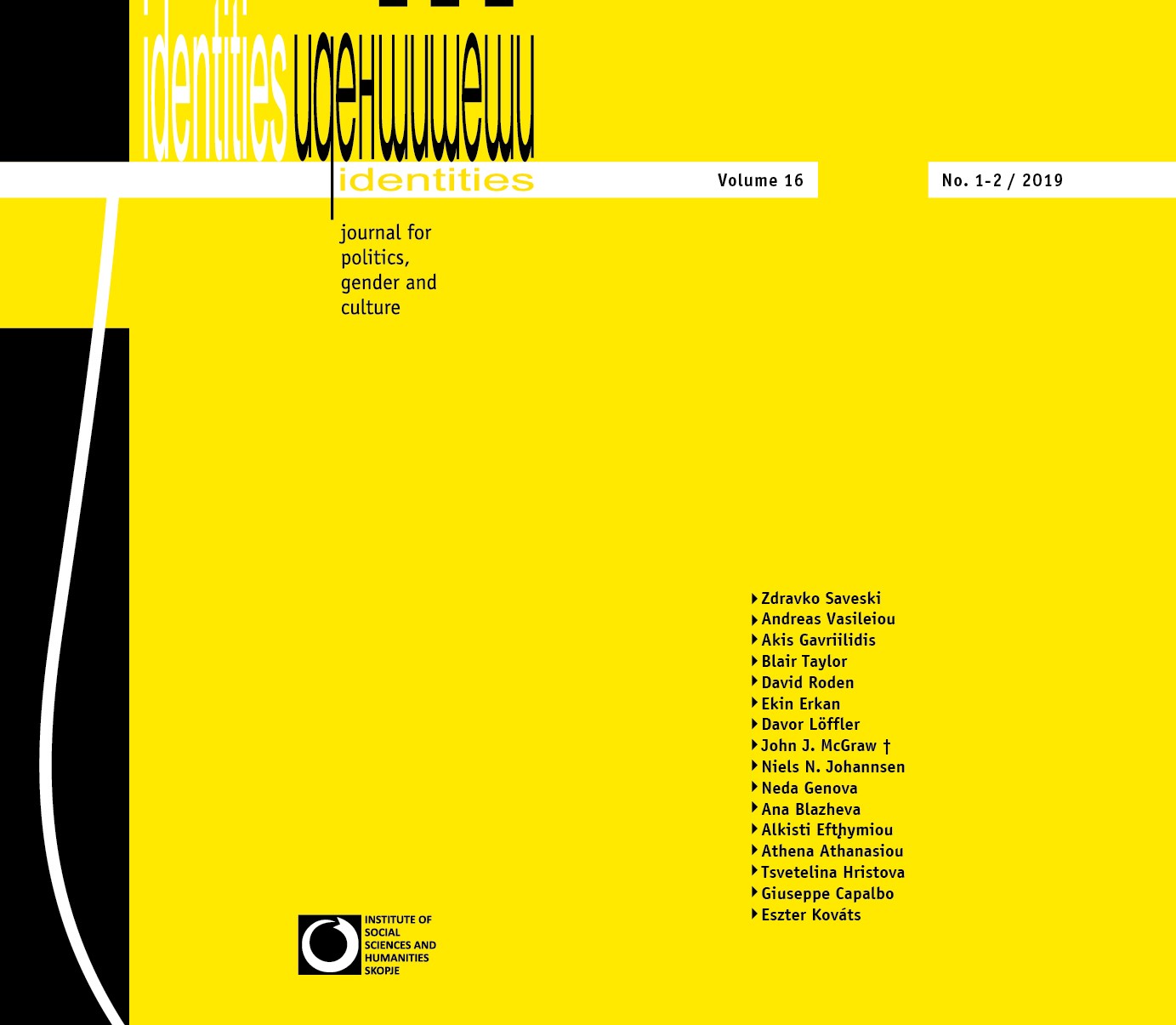Material-semiotic Transformations of the Berlin Wall in Post-Communist Bulgaria
DOI:
https://doi.org/10.51151/identities.v16i1-2.374Keywords:
Berlin Wall, Bulgaria, post-communism, recording surface, protest, transition, post-1989Abstract
In this article I examine the repeated material-semiotic mobilization of the trope of the Berlin Wall in post-communist Bulgaria. I show that despite the official dismantlement of the Wall commenced some thirty years ago, the structure’s afterlife continues to exert a unique influence on Bulgaria’s public life today. I explore the function of the Wall as a narrative and political device in moments when the relation to public space is negotiated or when notions of “past” and “present” are short-circuited. By taking up the notion of a “recording surface,” developed by Gilles
Deleuze and Félix Guattari in Anti-Oedipus, I show how Bulgarian post-communism can be understood as the terrain of a continuous production of consensus. I argue that after 1989 the Berlin Wall has adopted a governing and consensus-building function that contributes to the “smoothening” of political and social differences on the recording surface of Bulgarian post-communism. Yet,
what makes the examination of the fictitious successors of the original Berlin Wall an interesting terrain for examination is that their operation is predicated upon a material heterogeneity and dynamism. In the article, I explore the way this trope has been mobilized in four different cases from Bulgaria’s most recent history and demonstrate in what sense its “reactivation” can be seen as contributing to the stabilization of the recording surface of Bulgarian post-communism.
Author(s): Neda Genova
Title (English): Material-semiotic Transformations of the Berlin Wall in Post-Communist Bulgaria
Journal Reference: Identities: Journal for Politics, Gender and Culture, Vol. 16, No. 1-2 (Summer - Winter 2019)
Publisher: Institute of Social Sciences and Humanities - Skopje
Page Range: 78-90
Page Count: 13
Citation (English): Neda Genova, “Material-semiotic Transformations of the Berlin Wall in Post-Communist Bulgaria,” Identities: Journal for Politics, Gender and Culture, Vol. 16, No. 1-2 (Summer - Winter 2019): 78-90.

Downloads
Published
How to Cite
Issue
Section
License
Identities is published under the following license: Creative Commons Attribution-NonCommercial-NoDerivatives 4.0 International (CC BY-NC-ND 4.0). Under this license, users of our content must give appropriate credit to authors and source as well as indicate if changes were made, cannot be used for commercial purposes, and, in the instance that it is built upon or transformed, may not be distributed. For Identities, the copyrights allow the audience to download, reprint, quote in length and/or copy articles published by Identities so long as the authors and source are cited. For more information on our license, see the following: https://creativecommons.org/licenses/by-nc-nd/4.0.








